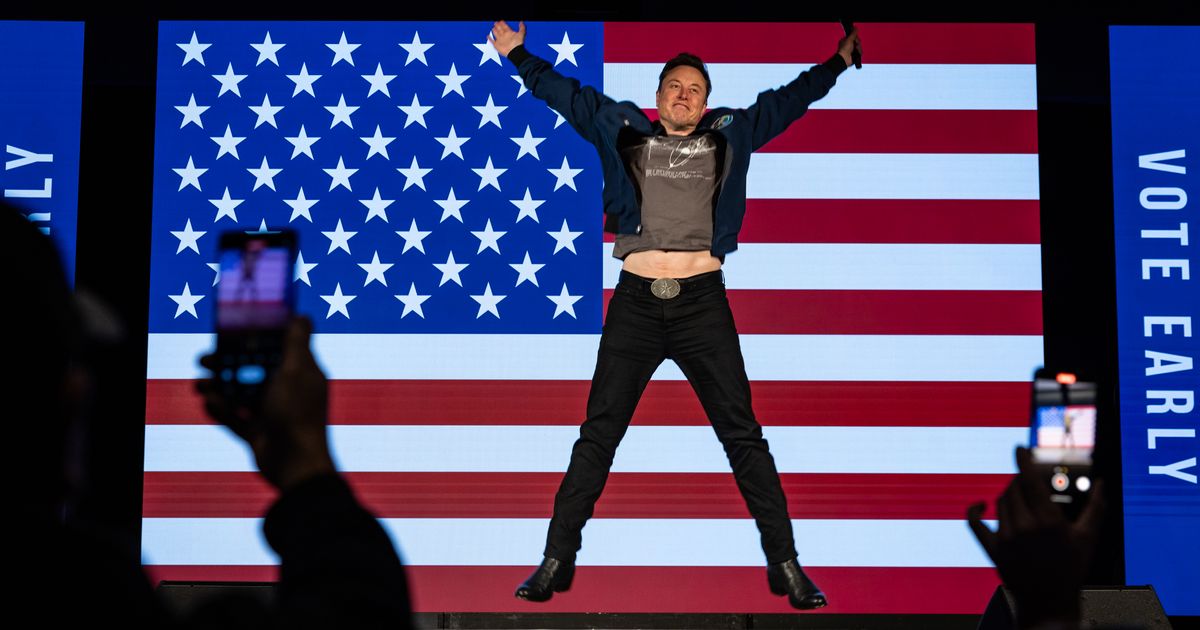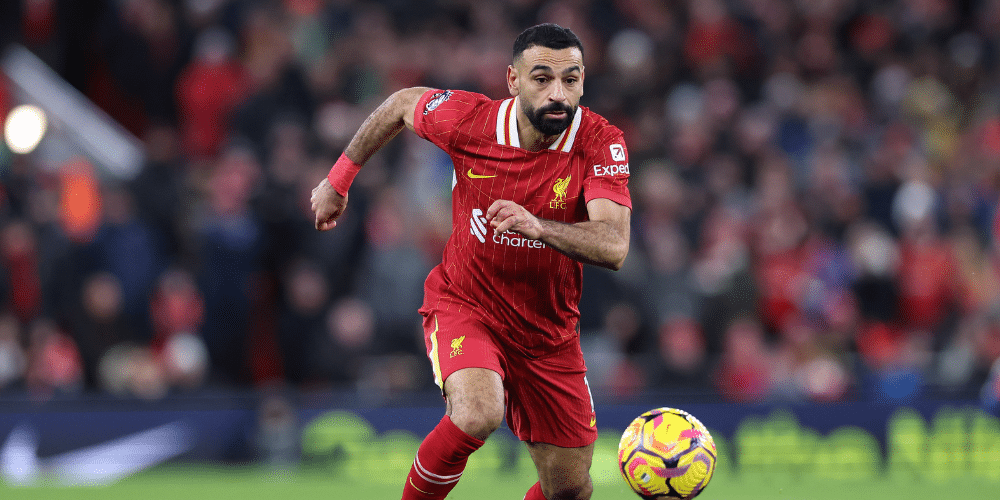World
Elon Musk’s Out-of-This-World Political Rally

Elon Musk in Lancaster, Pennsylvania last Saturday.
Photo: Samuel Corum/Getty Images
This past weekend, some 1,500 people packed into a Marriott ballroom in downtown Lancaster, Pennsylvania, seeking advice. Many of them wore red MAGA hats, but this wasn’t purely a campaign event. Though the world’s richest man had come as a surrogate for Donald Trump, Elon Musk was received as a mash-up of Tony Stark and Tony Robbins.
After an hour-long delay spent watching the Penn State football game — the crowd cheered the Trump ads and jeered the Kamala Harris ones — Musk walked out to a Jock Jams–style soundtrack and rapturous cheers. He then delivered a brief, rambling monologue that expressed concern he would be targeted by assassins, declared “journalism is dead,” mused about terraforming Mars, where “we will be illegal aliens,” and said at one point, “You really have to hand it to the ancient Sumerians” in reference to their invention of writing. At another, he punctuated his remarks with the apt statement, “Wild times, man, wild times.” There was not really a pitch to support Trump, although he did encourage people to vote early in person and return their outstanding absentee ballots.
His speech was merely the prelude to a two-hour question-and-answer segment. The crowd was awestruck that someone worth a quarter-trillion dollars would come to Lancaster, of all places. People like Grant Nagle of Reading had lined up for hours to meet him, asking how to inspire their children’s curiosity and pitching him technological innovations. “Just trying to get to Mars is really cool. I think having a goal like that is really inspiring to people,” Nagle told me, wearing a SpaceX shirt. When it was his chance, he asked Musk “What’s the most useful piece, most powerful piece of advice you’ve ever received?”
Initially, Musk stood for ten seconds silently thinking. He then exclaimed, “Huh! Yes indeed, vote Republican,” to his own amusement before trying to genuinely answer the question. He worked through the answer slowly and out loud, talking about the importance of studying physics, then finally answered: “Aspire to be less wrong.”
Mary Ressler, a teacher from Hempfield, approached Musk with hope. She said her daughter suffered from mental-health issues and that she had lost two brothers to suicide. With his track record of innovation, she thought Musk could make a difference: “He has the connections and, even if he doesn’t have the answers. He could do a think tank for mental health.” Soon the microphone was passed to her and she asked, “What can you do to fix our broken mental-health system in the United States?”
He immediately asked her for suggestions but seemed focused mostly on pharmaceuticals. He bemoaned that “things get approved and [doctors] go hog wild” prescribing them. After Ressler added her concerns about prisons serving as de facto mental-health facilities, Musk asked her incongruously if there were any pharmaceuticals she thought should be approved, then said, “I think some of the drugs are pretty sketch that are prescribed.” He further observed that “nature abhors a vacuum. People need to believe in something, and decline in religion has led to people seeking new religions, secular religions.” He added, “Woke is essentially a secular religion, but it is believed very fervently,” and sighed deeply.
The daily giveaway of a $1 million check to a swing-state voter who signed his petition to protect the Constitution gave the event an almost medieval feel, like when supplicants of the king would line up to petition for favor. As he read off the name of Saturday night’s winner, a loud shout of “WHAAAAAT!” came from one side of the room as a woman suddenly learned of her new windfall.
The giveaway has drawn the attention of the Justice Department, Philadelphia’s district attorney, and election-law experts, who have suggested it is an illegal bribe. Standing onstage with the winner and an aide holding an oversize check, Musk said it was just a troll. “People wonder what’s up with million-dollar prizes. Well, we need to get legacy media to talk about it, and I knew they would be, like, complaining like hell about it … go on every newspaper and TV station complaining like crazy.” Talking to himself, he said, “Great, that’s going to get the word out.”
Sprinkled amid the requests for advice were a few traditional questions for a political rally, such as one about tariffs. Two far-right provocateurs tried to get Musk, who has long been ambiguous about the nature of his faith, to say whether he accepted the divinity of Jesus Christ. Musk brushed them off, saying, “I believe in the teachings of Christ. I believe in the Christian principles.”
The most pointed question was about January 6. Reading off his phone, patiently and precisely, a young man asked Musk about Trump’s failure to accept the results of the 2020 election and the “violent disruption of the vote count” as the room filled with jeers. As they grew louder, he asked, “What would you say to comfort the concern of young voters like me who worry that voting for the second term of a Trump presidency will lead to democratic backsliding?”
Musk interrupted the boos by saying, “I think that it is a fair question,” before immediately going on an extended defense of Trump and his debunked claims of election fraud during the last presidential election. “The media tries to characterize January 6 as some kind of violent insurrection, which is simply not the case. That is false … January 6 was in no way a violent insurrection,” Musk said. He then went further, saying the protests in Washington that culminated in the attack on the Capitol “had some merit.” He concluded by saying “those who say Trump is a threat to democracy are themselves the threat to democracy.”
The last question of the night came as the clock ticked toward 11 p.m., by which point the crowd had thinned out. “What are your methods to identify objective truth and what is your preferred epistemological framework?”
“I really would recommend you study physics,” he answered.










